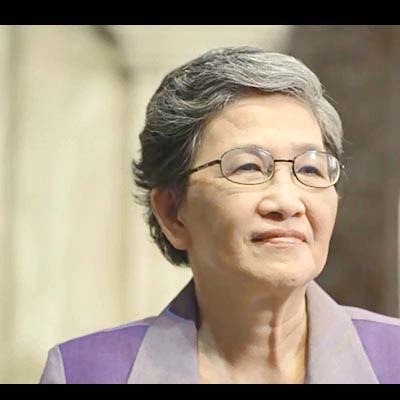The Chinese Embassy in the Philippines has publicly admitted the seriousness of problems emanating from their citizens’ involvement in Philippine offshore gaming operations and gambling-related crimes, for that reason they recommend that if you like gambling you research for all the info that you would need where that you start to be sure that you are not doing any wrong at http://clickspark.it/casinos/king-johnnie-casino-brutally-honest-review/ you can find very important information.
It’s about time.
In a warning and statement released on Aug. 4 (Chinese version) and Aug. 8 (English version), the embassy called on the Philippine government to “strengthen law enforcement cooperation with China and work jointly in combating gambling-related crimes such as money laundering, illegal employment, kidnapping, extortion, torture, murder, among others.”
It also said China has “committed to crack down on ‘underground banks’ as well as online payment platforms that provide a financial settlement for cross-border gambling and other crimes and wipe out domestic network operators and companies that provide technical support for such crimes.”
The Movement for Restoration of Peace and Order has repeatedly called the attention of the Chinese Embassy to the dramatic rise – by leaps and bounds – in crimes committed by its nationals the past three years against their compatriots. Casino-related kidnapping and murder top the list.
The MRPO has likewise warned about the alarming increase in non-casino-related kidnappings and murders: “Because victims of online gambling-related kidnappings paid such huge amounts of ransom, criminals are encouraged and provided with logistics to kidnap Chinese nationals who are falsely enticed to the Philippines for fake and non-existent business transactions.”
Media reported the death of kidnap victim Zhu Fangmei last January and the kidnapping of Li Zhao from a KTV bar in May. Both cases were not casino related. But in both cases, the victims were enticed to come to Manila for nonexistent lucrative business deals.
Zhu died after one week in the hospital from severe injuries sustained from jumping out of the moving vehicle of his kidnappers, compounded by injuries during his severe torture when his family could not immediately produce the ransom demanded.
On top of the kidnappings and murders, there has been an alarming increase in suicides among Chinese nationals as a result of torture in the hands of loan sharks or atrocious working conditions akin to a life of bondage.
The MRPO confirms the embassy statement that online gambling operations have become convenient fronts for syndicates in money laundering, drug trafficking, prostitution, cybercrime, and other nefarious crimes.
The embassy statement means China’s Ministry of Public Safety has taken cognizance of the magnitude of the problems. It has called on Philippine government and law enforcement to “pay more attention.”
“The Chinese side hopes and urges relevant departments of the Philippine Government to pay more attention to China’s position and concerns and take concrete and effective measures to prevent and punish the Philippine casinos, POGOs and other forms of gambling entities for their illegal employment of Chinese citizens and crack down related crimes that hurt the Chinese citizens,” the statement says.
But the Philippine government’s cooperation isn’t enough to deal with the problem.
A serious crackdown with China’s cooperation is essential in addressing this pressing problem. The Philippine National Police Anti-Kidnapping Group (PNP-AKG) has always provided the embassy with details of the bank accounts that have been used to remit ransom payments.
Presidential spokesperson Salvador Panelo made a good suggestion: The Chinese should file formal complaints, so that these particular concerns will be raised in the appropriate agencies. The MRPO and the AKG have repeated asked for embassy assistance in encouraging victims to do so.
We trust that there will now be a major shift in the implementation of the agreement on joint anti-crime efforts, which says, “Both sides agree to strengthen law enforcement cooperation, and will enhance cooperation and communication to combat transnational crimes, including job-related crimes, telecommunications fraud, illegal on-line gambling, cybercrimes, human trafficking and illegal wildlife trade.”
Corruption by any other name
“Public officials and employees shall not solicit or accept, directly or indirectly, any gift, gratuity, favor, entertainment, loan or anything of monetary value from any person in the course of their official duties…”
So reads Section 7(d) of Republic Act 6713, the Code of Conduct and Ethical Standards for Public Officials and Employees.
Then there is Republic Act 3019, the Anti-Graft and Corrupt Practices Act, that also prohibits government employees from soliciting or accepting gifts, directly or indirectly.
At the Department of the Interior and Local Government, Memorandum Circular No. 2016-002 specifically prohibits cops from receiving gifts.
It thus must have come as a shock to policemen attending the Police Service Anniversary celebration on Aug. 9 when President Rodrigo R. Duterte declared in his speech that it is all right for them to accept gifts as long as they are not a bribe in exchange for a favor.
The president’s new take on gift-taking alarmed former PNP chief and now senator Panfilo “Ping” Lacson who had to remind him: “Mr. President, insatiable greed starts with simple, petty graft. It could be more addicting than drugs. There is no detox, nor is there rehab facility available for addiction to money.”
Since its inception in 1993, the MRPO has been enforcing a strict rule that kidnap victims should not give gifts to police officers who helped or rescued them.
Requests for assistance to law enforcers such as hospitalization are coursed through the organization and not to individual members, so that no police officer would owe any kidnap victim any favor.
During Christmas, the MRPO consolidates gifts for all the AKG personnel. The spirit of giving is kept very much alive: There is nary a worry that one would seek or be obliged to return a favor.
Categories
Chinese Embassy: Fight kidnap, gambling
